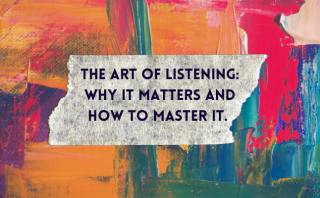Have you ever found yourself in a situation where someone seems determined to misunderstand you? You explain your point rationally, with good intentions, and yet, instead of dialogue, you get hostility, dismissiveness, or even outright cruelty. It happens in workplaces, friendships, families, and even with strangers. But why? What drives people to behave this way, and why do they seem unaware of their own behaviour?
1. Emotional Triggers and Personal Baggage
Many times, a person’s reaction to you has little to do with you at all. People carry unresolved emotional wounds, past disappointments, and hidden insecurities. Your words or actions—no matter how well-intentioned—might unknowingly trigger something deep within them. Instead of responding rationally, they lash out defensively, often unaware that their reaction is more about their past than the present moment.
2. Ego and the Fear of Being Wrong
Admitting fault or reconsidering a stance requires humility, and for some, that’s too much to bear. Their identity is often tied to being right, being in control, or maintaining a particular self-image. If your perspective challenges that, their instinct may be to fight back rather than engage in honest reflection.
3. Tribalism and ‘Us vs. Them’ Thinking
Humans are wired to form groups and alliances, whether at work, in social circles, or within families. When someone perceives you as being from an “opposing” side—whether that’s ideological, professional, or personal—they may reject your words outright, not based on their merit, but because they feel you represent a “threat” to their side. This is why logic often fails against strong biases.
4. Projection: Seeing Their Own Flaws in Others
People often accuse others of the very things they struggle with internally. If someone feels insecure about being manipulative, dishonest, or selfish, they may project those qualities onto you—even when you are acting in good faith. This allows them to avoid facing their own shortcomings.
5. Cognitive Dissonance and Justifying Their Behaviour
When people behave unreasonably or unkindly, they don’t like to think of themselves as the “bad guy.” Instead, they justify their actions by convincing themselves that you deserve it. This mental gymnastics—known as cognitive dissonance—helps them sleep at night, even if their behaviour was unfair or cruel.
6. Lack of Emotional Intelligence
Some people simply lack the self-awareness to recognize how their words and actions affect others. They react impulsively, without pausing to consider the impact. This is especially common in high-stress environments where emotional control takes a backseat to self-preservation.
7. Power and Control
In workplaces and personal relationships alike, some people thrive on exerting control over others. Dismissing your point of view, twisting your words, or deliberately misunderstanding you can be a way to maintain dominance in the interaction. This isn’t about logic or fairness; it’s about power dynamics.
So, What Can You Do?
While you can’t control how others behave, you can control your response. Here are some strategies to navigate these situations:
• Don’t take it personally. Their reaction is often more about them than you.
• Pick your battles. Not every situation is worth your emotional energy.
• Stay calm and composed. Responding with anger only escalates the situation.
• Set boundaries. If someone repeatedly treats you unfairly, distance yourself if possible.
• Seek understanding, but know when to walk away. Some people are simply not ready or willing to engage in good faith.
Ultimately, while it’s frustrating when people are unreasonable, hateful, or cruel, recognizing the deeper motivations behind their behaviour can help you navigate these situations with clarity and peace.
(Do check out our Favourite Things page. FAVOURITE THINGS)






